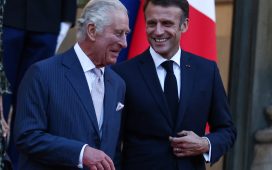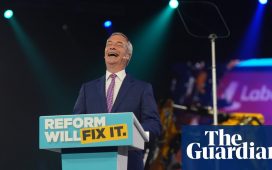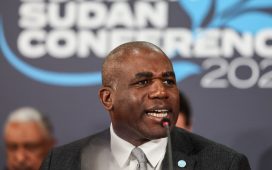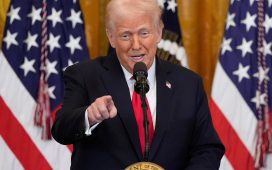When Boris Johnson arrived three hours early for his long-awaited evidence session at the Covid inquiry on Wednesday morning, it was still dark outside, leading one minister to joke that “it’s the first time Boris has ever been early for anything”.
Johnson’s promptness – which meant he avoided the families of some of those who died during the pandemic gathering outside – was not an indication that he had turned over a new leaf, rather that he wanted to avoid all the negative headlines he possibly could.
The former prime minister is acutely aware that his first appearance in front of the official inquiry is a key moment in shaping his long-term legacy – particularly as his friends claim that he still harbours hopes of making a political comeback.
In previous weeks the inquiry has been painted – in the words of its lead counsel, Hugo Keith KC – “an appalling picture of incompetence and disarray” at the heart of his government. He has been described by a string of advisers as indecisive and lacking in leadership, and even as a “trolley” veering from one position to another.
So this was always going to be a perilous moment for Johnson, with his government facing criticism for its slow initial response to the pandemic, decisions such as discharging patients from hospitals into care homes, schemes such as ‘“eat out to help out” and delays in locking down the country a second time.
Johnson has spent, aides say, almost a year preparing for his appearance, including hours with his taxpayer-funded lawyers poring over more than 6,000 pages of material to be ready for any line of questioning.
So far, he appears to have learned the lesson of his angry clashes with the privileges committee during their partygate inquiry in March 2023, when his attacks on the members’ integrity led to the imposition of a more severe sanction and, ultimately, his departure from parliament.
His strategy for the Covid inquiry seems to be to limit the opportunities for negative headlines. So, for the most part, his bombast was hidden, his temper under control and his instinctive reaction to make a joke out of everything suppressed.
Yet there was no hiding his defensiveness, particularly when reminded that the UK suffered the highest excess deaths from the first Covid wave in western Europe, after Italy. Nor his evasion – with the former prime minister frequently claiming he could not recall meetings or what he had been told by ministers and aides.
While Johnson admitted the government “inevitably” had got some things wrong – such as assuming the public would tire of lockdowns – he suggested this was only with the benefit of hindsight and not anything that could have been done differently at the time.
But even while he took “personal responsibility” for all decisions, he said it was the whole establishment which had “underestimated” the scale of the challenge and said he had been guided by advice. “We should collectively have twigged much sooner,” he added.
The inquiry was also reminded of some of Johnson’s more controversial assertions. He said he regretted describing long Covid as “bollocks” and comparing it to Gulf war syndrome, and didn’t deny questioning why his government was “destroying everything for people who will die anyway soon, bedblockers”.
Despite weeks of evidence about the dysfunctional nature of his No 10, and the toxic culture in his top team, he attempted to defend it, claiming that if Thatcher’s government had used WhatsApp they would have said similarly “fruity” things.
after newsletter promotion
In fact, he admitted he actively fostered a challenging environment. “I decided that it was best to have an atmosphere of challenge with some strong characters giving me advice. I valued that advice.”
Yet he resisted the urge to open up a new front with Cummings, referring to him throughout as “this adviser” and only once rolling his eyes in response to his former top aide’s claim that he planned to offer up Matt Hancock as his sacrifice to the inquiry.
Johnson was accused of trying to rewrite history even before the hearing began, with his team accused of briefing favourable stories to newspapers. Lady Hallett, the inquiry chair, was unimpressed. “Failing to respect confidentiality undermines the inquiry’s ability to do its job fairly, effectively and independently,” she told him.
As numerous reports had suggested he would, he began his session with an apology for what he described as the “pain and the loss and the suffering” during the pandemic, and at one point fought back tears as he discussed that “tragic, tragic year”.
In the inquiry room, four people held up signs saying “the dead can’t hear your apologies” and were promptly removed. Dozens of bereaved families gathered outside with pictures of their loved ones. Millions more people across the country will have watched the proceedings on the news.
Johnson may hope this is the moment that will change people’s minds on the government’s handling of the inquiry. What he is likely to find, however, is that most have already decided, and it is harder than he thinks to rewrite history.











